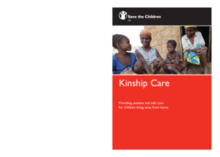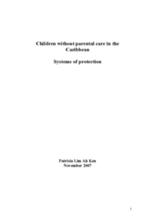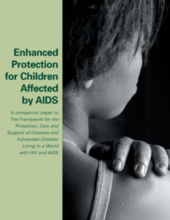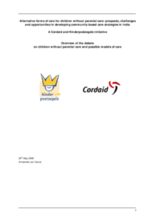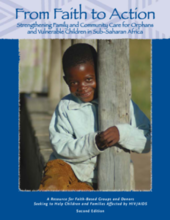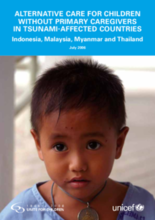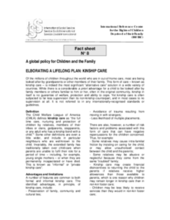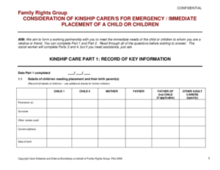Displaying 571 - 580 of 608
This paper aims to present information about the prevalence of kinship care, describe its practice and related issues in different countries, and make recommendations to protect and support children living in kinship care arrangements.
A regional assessment of responses to children outside parental care in the Caribbean. Extensive research on successful examples of alternative care. Includes recommendations and lessons learned.
Outlines how to strengthen social protection, legal protection, and alternative care for children at country level. Contains specific actions that governments and NGO's can take to decrease the vulnerability of children affected by AIDS and respond to instances of abuse, exploitation and neglect.
This document presents the full policy on the alternative care of children in Cambodia.
Detailed examination of debate over institutional and alternative care methods for children without parental care. Includes comprehensive framework for collective action.
A tool to encourage donors to fund community programs that keep children in family care, rather than simply funding orphanages. Describes the many strategies being used to invest in community-based care, and contains specific program examples.
This article examines the foster care of Aboriginal children in Australia. It discusses the Aboriginal Child Placement Principle (ACPP), the role of indigenous kinship care and the self-determination of Aboriginal people.
An assessment of alternative care responses for children without primary caregivers in tsunami-affected regions of Malaysia, Myanmar, Indonesia, and Thailand. Includes good practices, recommendations, and detailed country reports.
A brief fact sheet that provides an overview of kinship care.
A template for assessing the suitability of kinship caregivers in the short term, and for planning the care of a child in kinship care. There are sections that can be given to potential caregivers to help them prepare for caring for a child.

